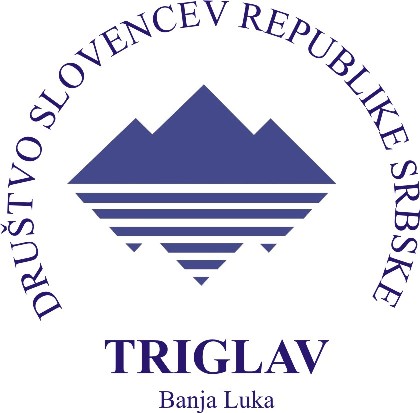Gleb Pilipenko, PhD, a research associate of the Institute for Slavic Studies of the Russian Science Academy, visited Banjaluka in late August. The aim of the visit from 28 – 31 August 2017 was to research language and cultural situation of Slovenians in the Republic of Srpska.
The research is a part of international project between the Institute for Slavic Studies of the Russian Science Academy and Faculty of Philology of the University in Banjaluka (Preservation of cultural heritage of national minorities in the RS). During the visit he recorded interviews with Slovenians living in Banjaluka, Slatina, Malo Blaško and Prijedor. The interviewees included representatives of pre-war Slovenian migrants in the territory of BiH, as well as Slovenians and their descendants who came to the area during the second Yugoslavia. There was the total of 12 interviews recorded. The interviews were conducted mainly in Slovenian, and sometimes in Serbian because some representatives of the Slovenian minority do not speak Slovenian. He was mainly interested in the language spoken by Slovenians, interference with Serbian, loanwords and syntactic constructions. They also discussed the preservation of cultural elements important for Slovenians: holidays, cuisine, material heritage, etc. At the same time, it was interesting to see how local and Slovenian cultures intertwine, what Slovenians take over from their neighbours and what they preserve intact. He met both elder and young members of the Slovenian associations. The most interesting were mixed marriages where two traditions, two languages meet. This example shows strategies of adaptation and enriching one culture with the other. Slovenian cultural associations in the RS (Triglav in Banjaluka and Lipa in Prijedor) are very active, they organise Slovenian lessons, cultural events, issue important books about the Slovenian minority in the relevant areas. A more detailed analysis of collected data will show at which language level there appear obvious loanwords and how the adaptation of language elements is carried out.
Gleb Pilipenko







